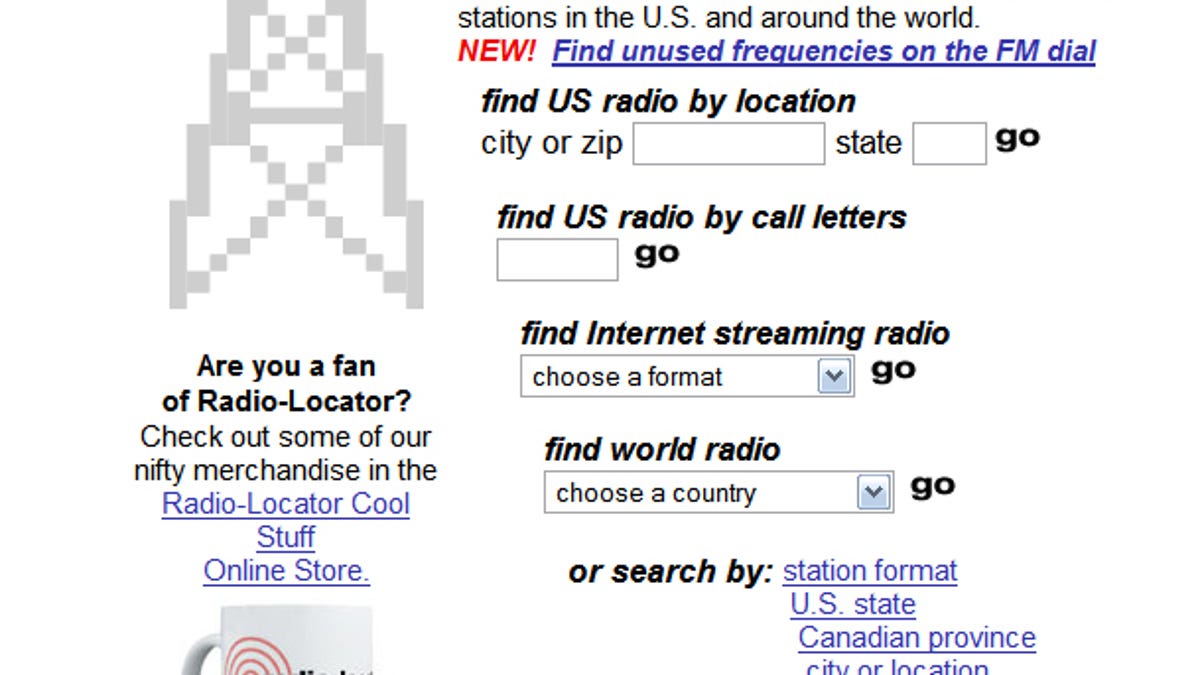Find local stations (and unused frequencies) with Radio-Locator
Radio-Locator is a great tool for finding AM, FM, and online radio stations, as well as unused frequencies for FM transmitters.

Need to find info on anything radio related? Check out Radio-Locator. The site offers a searchable database of AM and FM radio stations around the U.S. (and the world, in fact). You can search by ZIP code (most useful) or state, or look up specific stations by their call letters. If you search by ZIP code, you'll get a list of all the stations that should be accessible in your area, along with distances and signal strengths and hyperdetailed information on the stations themselves (the owner's address and phone number, FCC license info, programming genre, transmitter location and power, coverage maps, and the like). Particularly useful are the direct links to the stations' Web sites and URLs for online streaming (if available).
Another great feature of the site is its ability to find unused FM frequencies in your area. For anybody who uses an FM transmitter (for instance, to broadcast an iPod or satellite radio signal to a nearby car radio that lacks an auxiliary line-in port), it's a great tool: just type in your ZIP code and get the vacant frequencies in your area, thus giving the transmitter the clearest possible path rather than having it fight against a multimegawatt station on the same frequency. (That said, the smooth performance I've gotten from devices that use Bluetooth 2.0 for wireless transmission has me swearing off FM transmitters for the foreseeable future.)
The only info not offered by Radio-Locator is whether a station is broadcasting in the new all-digital HD Radio format. No worries: just pop over to HDradio.com, which has a state-by-state list. (The normal caveat applies: unlike standard analog AM and FM, you'll need hardware that's HD Radio-compatible to hear the digital stations.)

